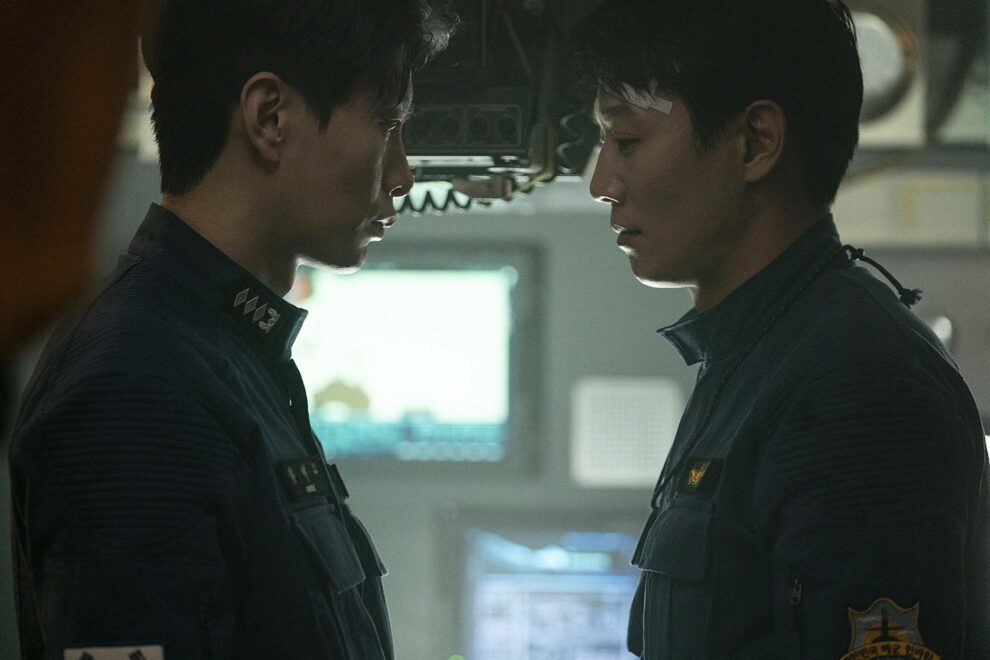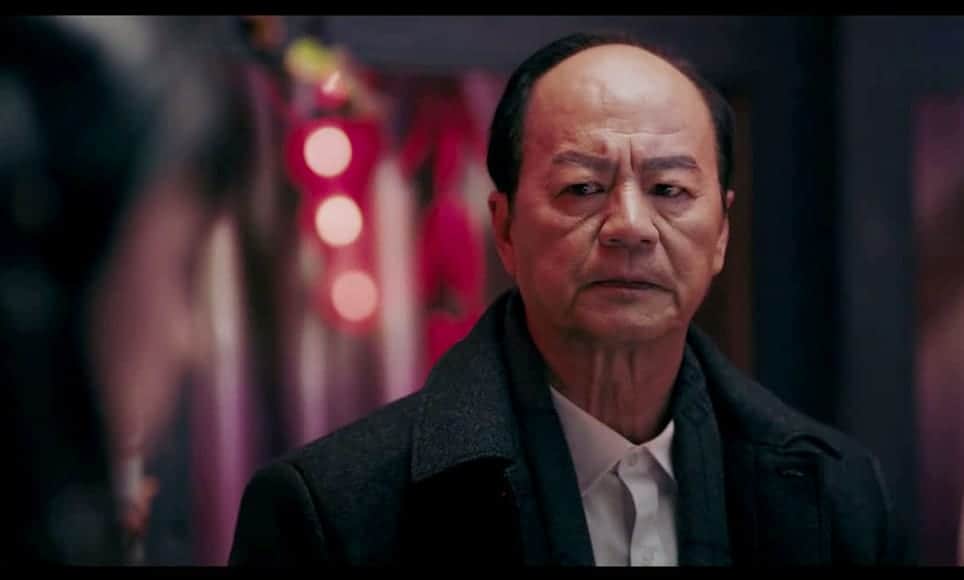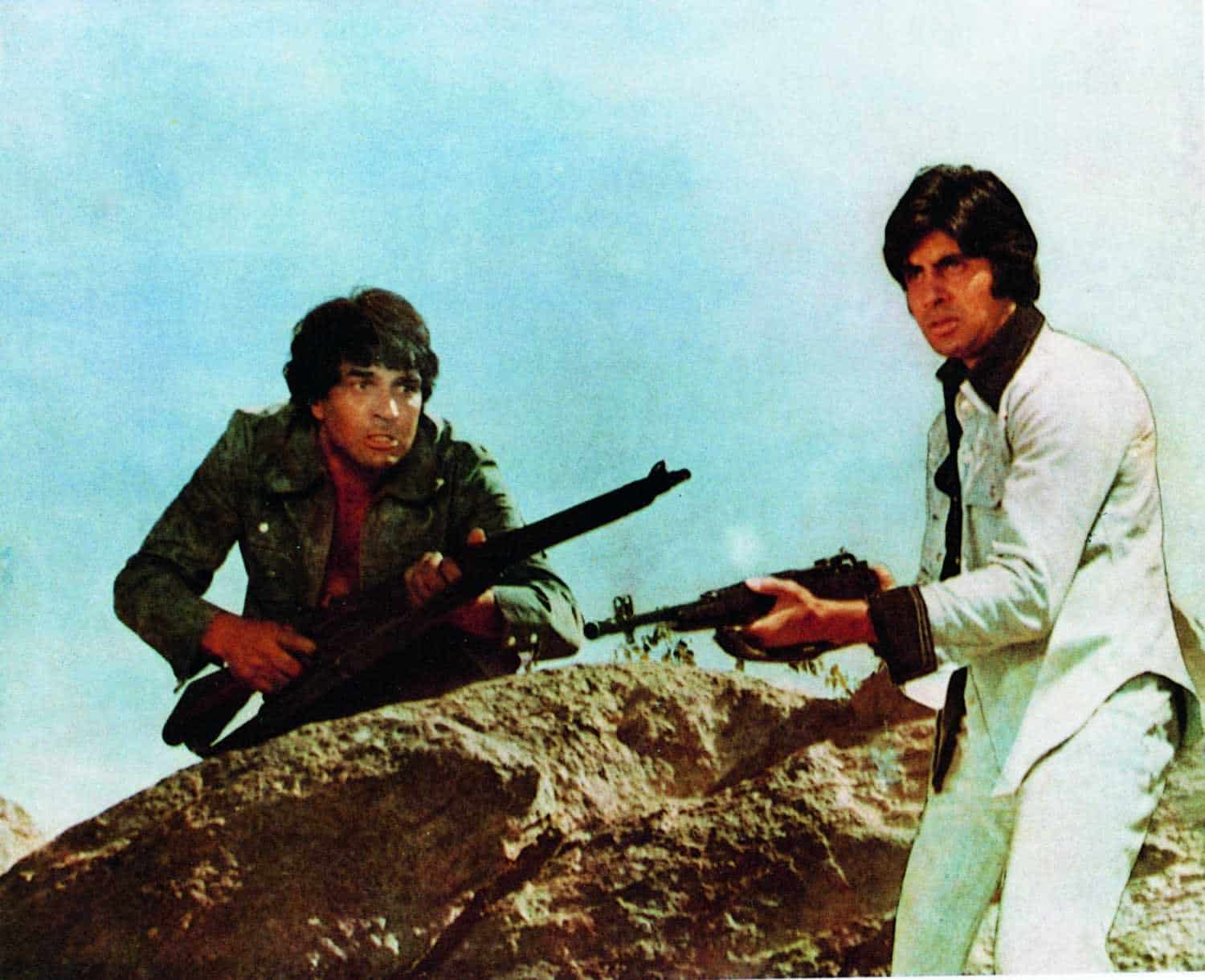Ticking time bombs and a race against time are a staple of the thriller genre. For his latest work “Decibel”, director Hwang In-ho, the man behind the horror/romcom “Spellbound” and the action-heavy “Monster”, treads familiar grounds of one man going against the clock to save the city.
“Decibel” review is part of the Submit Your Film Initiative

One year ago, the Korean submarine ROKS Halla sunk after being hit by a rogue torpedo and with it, perished exactly half of the crew that was onboard, while the other half was saved days later. Today, the vessel's Captain Kang Do-yeong, still evidently suffering from PTSD, is hailed a hero for managing to survive and saving half his men under extreme circumstances. One day, as he is returning from a press conference and felicitation ceremony, he receives a mysterious phone call that tells him of a bomb that has been placed inside a football stadium, one that will be detonated when the noise in the stadium reaches a certain decibel, and another in a children's playground. As he is made aware of more and more such sound-activated bombs around the city by this terrorist, who seems to somehow be connected to the sinking of ROKS Halla and is targeting him and his family, Kang Do-yeong must run across the city, finding who this caller is while also trying to defuse these bombs before it is too late… and too loud.
Working for the first time with a script not written by himself, Hwang In-ho seems to know his way around the thriller genre as he keeps set pieces after set pieces coming in quick succession and manages to make them feel urgent and sensational. The use of the sound-activated bombs is a novel change from the usual time bomb device, that provides for some interesting scenarios for Kang Do-yeon to handle and diffuse. Hwang balances these tense moments effectively with some emotions too, particularly in the flashback scenes in the submarine with the navy officers, even if they could feel as the navy equivalent of what some people call “copaganda”. These scenes in the submarine also benefit from the cinematography, which does well to show the claustrophobia of the tight spaces within the submerged vessel.
Hwang tries to involve some sentimentality with the involvement of Kang's family too, but it doesn't really help the cause when none of the fathers in the story seem especially worried for their child after putting them in danger. Through the journalist character that ends up helping Kang, there are a few attempts at inserting humour within the narrative as well, but it doesn't always hit its mark and ends up sticking out as a sore thumb for the most part.
“Decibel” however never really rises above mediocrity because of its refusal to take risks. Some of the best South Korean thrillers have succeeded because they take narrative risks and key characters are sometimes found to be expendable, at great personal cost to the protagonists. Maybe a similar approach would've benefited Hwang's feature. This also extends to Kang, which has been written as too straightforward and virtuous. Some shades of grey or moral ambiguity would've worked in its favour. This doesn't apply to the antagonist Jong Tae-sung though, who gets to play both sides of the coin with the flashbacks and the present timelines, even if he is written in a somewhat caricaturish manner.
If there's anything stopping “Decibel” from completely falling apart at the seams, it is its two excellent lead actors. The story barely leaves Kang Do-yeon's side and Kim Rae-won is a magnetic presence that compels the viewer's attention. Fans will certainly be glad to see him run around in a navy uniform all through the film. Lee Jong-suk doesn't appear till more than fifty minutes in, but once he does, he ends up owning most of the scenes he's in. His journey as an actor is most impressive to follow, as he is creating a cinematic legacy for himself far different to his flower boy image on tv with these antagonist roles he keeps impressing in. K-pop singer Cha Eun-woo also features, as does Hwang In-ho's regular leading man Lee Min-ki, but they are both underused in parts that barely register as cameos.
Ultimately, “Decibel” ends up being a breezy, fun 100 minutes that are entertaining and thrilling in their own respect, but it never really explodes, for lack of an attempt to set itself apart from the large number of mediocre features flocking the genre, particularly in South Korean cinema.















